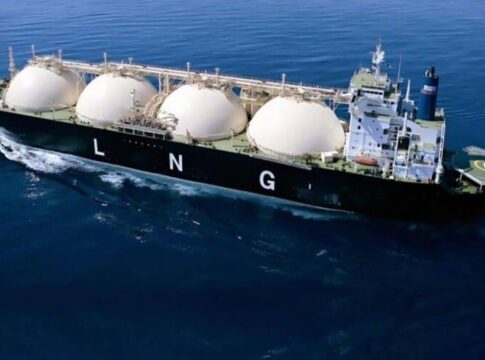Egypt has signed agreements valued at approximately $3 billion with energy giants Shell and TotalEnergies. These deals will secure 60 shipments of liquefied natural gas (LNG) for the year 2025, multiple market insiders disclosed to S&P Global Commodity Insights.
While Shell has chosen not to comment on the agreements and attempts to contact other parties involved have been unsuccessful, market sources reveal that the deal was likely finalized in late 2024. Unlike previous Egyptian LNG deals, this one could offer flexible payment terms extending up to a year, contrasting with the typical 180-day terms seen in past tenders. Market players suggest that the pricing structure is linked to the Dutch Title Transfer Facility (TTF), a key European gas trading hub.
The LNG market is under transformation, as reported by specialists in Singapore who noted significant changes in the pricing spread for Northwest Europe compared to TTF since December. As of February, Platts assessed the East Mediterranean marker (EMM) for March delivery at $16.096/MMBtu, positioning it at a 41.5-cent/MMBtu discount to TTF’s month-ahead prices and a 13.5-cent/MMBtu premium compared to other European markets.
Egypt’s return to LNG imports in mid-2024, after a hiatus since 2018, was primarily driven by a growing gap between gas supply and demand. To address this, the nation swiftly ramped up imports through multi-cargo tenders, managing to secure 2.5 million metric tons of LNG in 2024 through its Ain Sukhna import terminal. This surge also included significant contributions from Jordan’s Aqaba terminal, catering primarily to Egyptian demand.
These tenders have attracted high premiums over Dutch TTF prices due to factors such as extended payment terms and additional costs like Suez Canal fees. For instance, the latest Q1 2025 tenders were awarded at TTF plus $0.80-$1/MMBtu, with Q4 prices reaching TTF plus $1.50-$1.60/MMBtu.
The consistent rise in LNG and gas prices over the winter season has left little room for easing, pushing Egypt towards securing longer-term deals to mitigate the spot market’s volatility.
Market discussions also hint at an awarded strip of 15 cargoes for the first half of 2025, complementing the recent four-cargo tender and the comprehensive 60-cargo deal. Experts predict that Egypt could benefit from reversed arbitrage patterns favoring Europe, potentially redirecting volumes to the Atlantic basin as the summer season nears.
An Atlantic-based trader emphasized, “With the negative JKM-TTF spread till October, Egypt remains a premium market, and it makes sense to retain cargoes domestically.”
For the upcoming summer season, Platts assessed the interbasin spread between JKM and Northwest Europe at 17.1 cents/MMBtu, suggesting limited opportunities for arbitrage compared to last year’s $1.325/MMBtu spread.
In summary, as Egypt continues to navigate its energy landscape, these strategic LNG deals with Shell and TotalEnergies mark a significant step in ensuring a stable energy supply, aligning with the broader regional and global energy dynamics.


